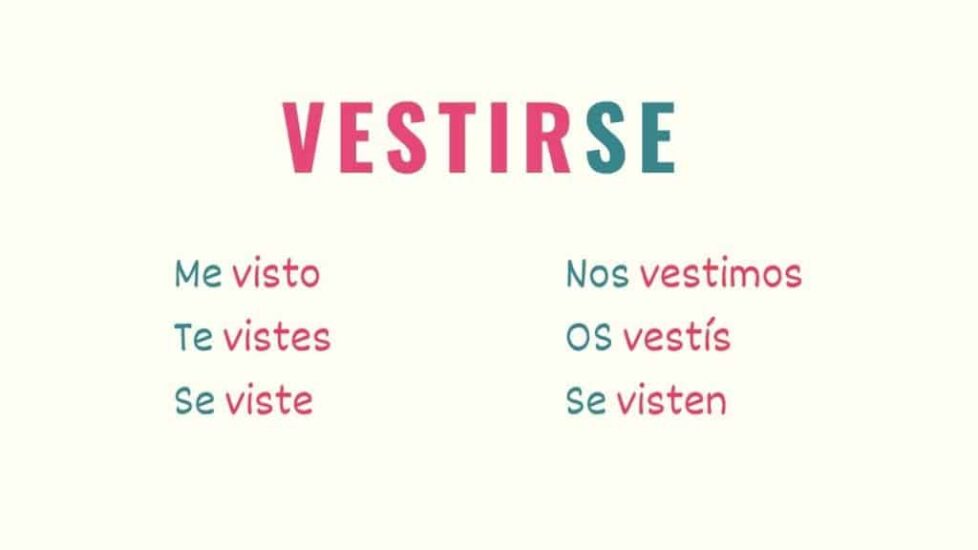Reflexive Verbs

Basically a Spanish verb is reflexive if the subject of the verb is also the object. When the person you are referring to in the verb is doing something to himself or herself it is reflexive. If the verb is reflexive when you write out the infinitive (non conjugated form of the verb) it will have “se” on the end.
Please notice that reflexive verbs can have a non reflexive version to. In this case the action is not being done to one’s self. It will not have “se” at the end when written out in the non conjugated form (the infinitive). Examples:
Levantarse = To get onself up (as in getting up in the morning)
(yo) me levanto
(tú) te levantas
(él) se levanta
(ella) se levanta
(usted) se levanta
(nosotros/nosotras) nos levantamos
(ellos/ellas) se levantan
(ustedes) se levantan
Me levanto a las siete de la mañana. = I get (myself) up at 7:00 in the morning.
Ella se levanta a las ocho. = She gets (herself) up at eight.
Nos levantamos a las nueve de la mañana. = We get up at 9:00 AM.
Levantar (not reflexive) = To lift or raise
(yo) levanto
(tú) levantas
(él) levanta
(ella) levanta
(usted) levanta
(nosotros/nosotras) levantamos
(ellos/ellas) levantan
(ustedes) levantan
Levanto pesos. = I lift weights.
Ellos levantan el carro. = They lift up the car.
Nosotros levantamos el sofá. = We lift the sofa.
Lavarse = To wash (onself)
(yo) me lavo
(tú) te lavas
(él) se lava
(ella) se lava
(usted) se lava
(nosotros/nosotras) nos lavamos
(ellos/ellas) se lavan
(ustedes) se lavan
Me lavo en el río. = I wash myself in the river.
Se lava las manos. = She washes her hands.
Nos lavamos en el baño. = We wash ourselves in the bathroom.
Lavar (not reflexive) = To wash
(yo) lavo
(tú) lavas
(él) lava
(ella) lava
(usted) lava
(nosotros/nosotras) lavamos
(ellos/ellas) lavan
(ustedes) lavan
Yo lavo el carro de mi padre. = I wash my Dad’s car.
Ella lava la ropa sucia. = She cleans the dirty clothes.
If you have a sentence with two verbs, with the reflexive one not conjugated, you can put the reflexive pronoun at the beginning of the sentences or you can stick it on the end of the non conjugated verb. You do this when using the present progressive, the future tense with ir + a + verb (not conjugated) and after verbs like “querer” or “preferir” or “necesitar”.
Afeitarse = To shave (oneself)
I am going to shave. = Me voy a afeitar.
or
Voy a afeitarme.
They need to shave. = Se necesitan afeitar.
or
Necesitan afeitarse.
We prefer to shave in the morning. = Nosotros nos preferimos afeitar en la mañana.
or
Preferimos afeitarnos en la mañana.
